The association dedicates to affective and sexual education of youth with disability, families and professional caregivers. Depending on the demand that is presented, the specific needs and interests expressed by the person, family and/or educational centre, the LoveLife team designs and implements an ad hoc therapeutic and experiential psychoeducational response. We offer both individual and group pathways, both extensive and intensive. Our interventions have both a preventive and corrective purpose with respect to problem-problem (maladaptive) behaviours typical of the diseases concerned.
In addition to psychoeducational journeys, we are also involved in training and outreach, for example, with affectivity and sexuality education courses in schools, expanding the skills of youth workers, contributing to scientific research, and promoting correct information and best practices on wellness and health in the community.
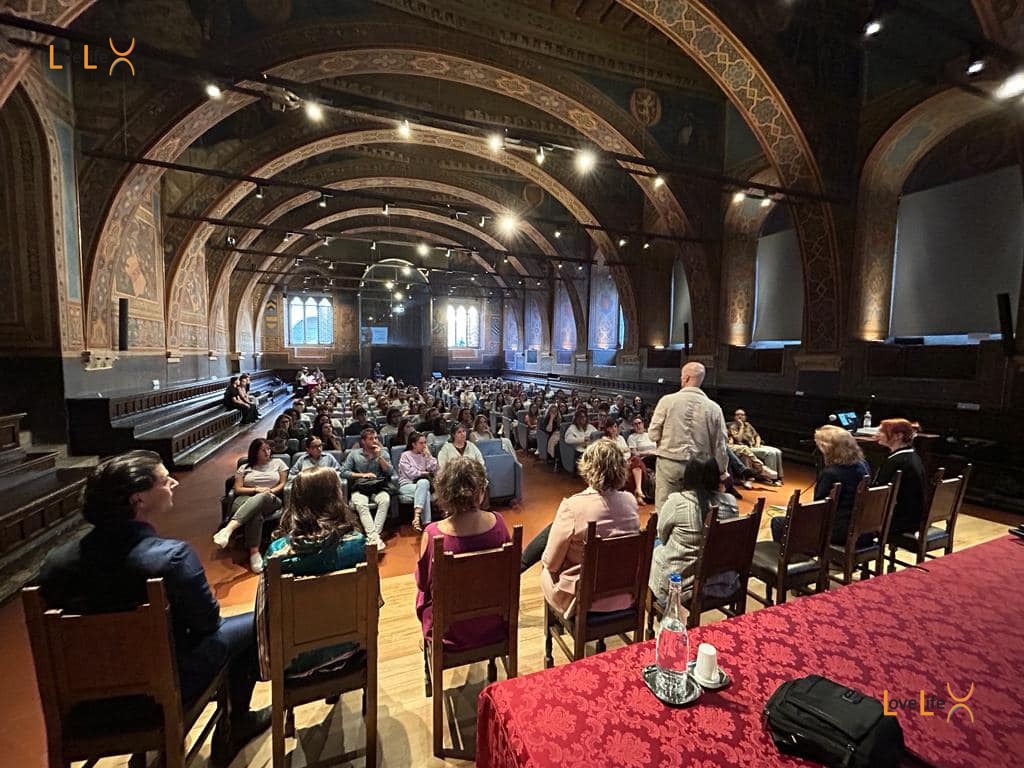
Vi presentiamo LoveLife – Festival della Psicologia – Perugia, 2023
Here follow our main subjects of interest.
- Self-esteem, knowledge, acceptance and respect for one’s body.
e.g., accepting and not harming even those parts they do not like.
- Recognition of one’s emotions and body sensations and correct expression of one’s affectivity.
e.g., if you love someone you can express it by saying ‘I love you,’ not by trying to kiss them at all costs; if you get angry you can say ‘I am angry and I want to hit the anger pillow,’ but you cannot yell and break objects in the house.
- Distinction of public and private parts of the body, public and intimate actions appropriate to different contexts.
e.g., don’t show genitals in class, don’t touch other people’s genitals.
- Requesting and expressing consent to physical contact.
e.g., ask before hugging someone, say whether you want to be hugged or not.
- Acceptance that one’s expectations may not be realized and management of the resulting frustration.
e.g., wanting to hug strangers and expecting enthusiastic generalized reciprocity.
- Recognition of others’ emotional expressions.
e.g., when mom raises her voice, she is getting angry; if a person is crying he/she is sad, then I can kindly ask how he/she is doing.
- Protection from others’ inappropriate physical approaches to sexual abuse prevention.
e.g., learning that strangers should not touch one’s body and how to prevent this from happening.
- Preparation for menarche and knowledge and management of the menstrual cycle.
e.g., around age 9-10, when the body begins to develop, but ideally before the arrival of blood to prevent menarche from becoming a traumatic event that could be hidden and interpreted as ‘sickness’ or ‘dirt’.
- Knowledge and management of erection, pollutions and ejaculation.
e.g., avoiding panic from inability to control one’s penis and its erections or getting down thinking one is urinating in his sleep.
- Appropriate masturbation education to respond in a healthy and respectful manner to sexual urges, while respecting social and cultural norms.
e.g., I can retreat to my room, wash myself before and after and touch myself in a way that does not cause me injury; I cannot rub myself on other people or on the couch or bus seats.
- Affectivity and sexuality education as a couple.
e.g. at the day care center two users get engaged, how can they deal with mutual interest and physical attraction in a satisfactory and safe way?
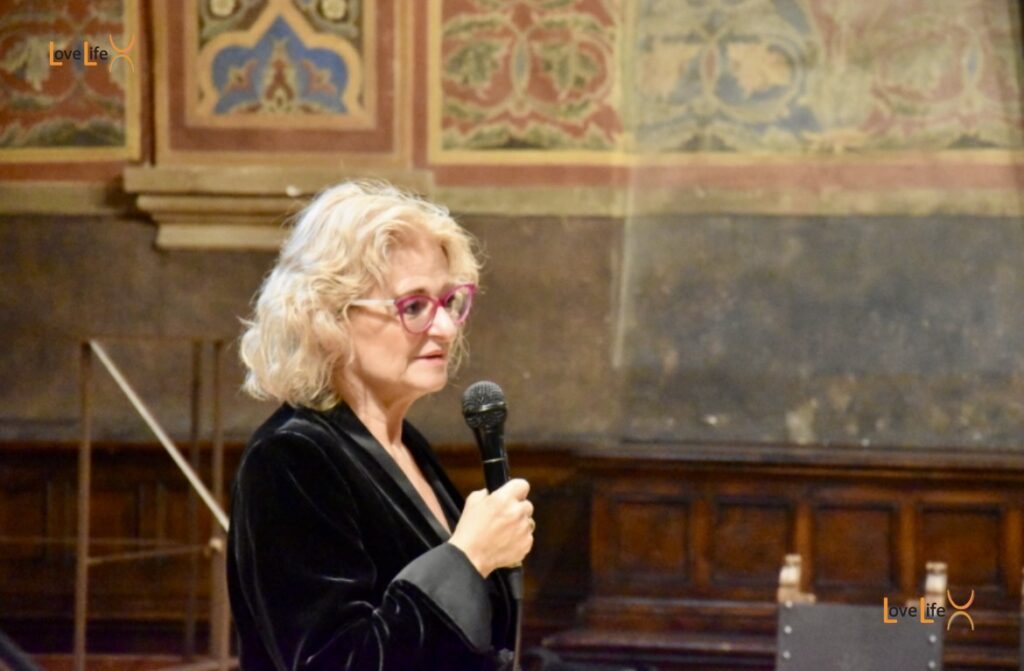
Rosella de Leonibus parla del diritto al piacere – Festival della Psicologia – Perugia, 2024
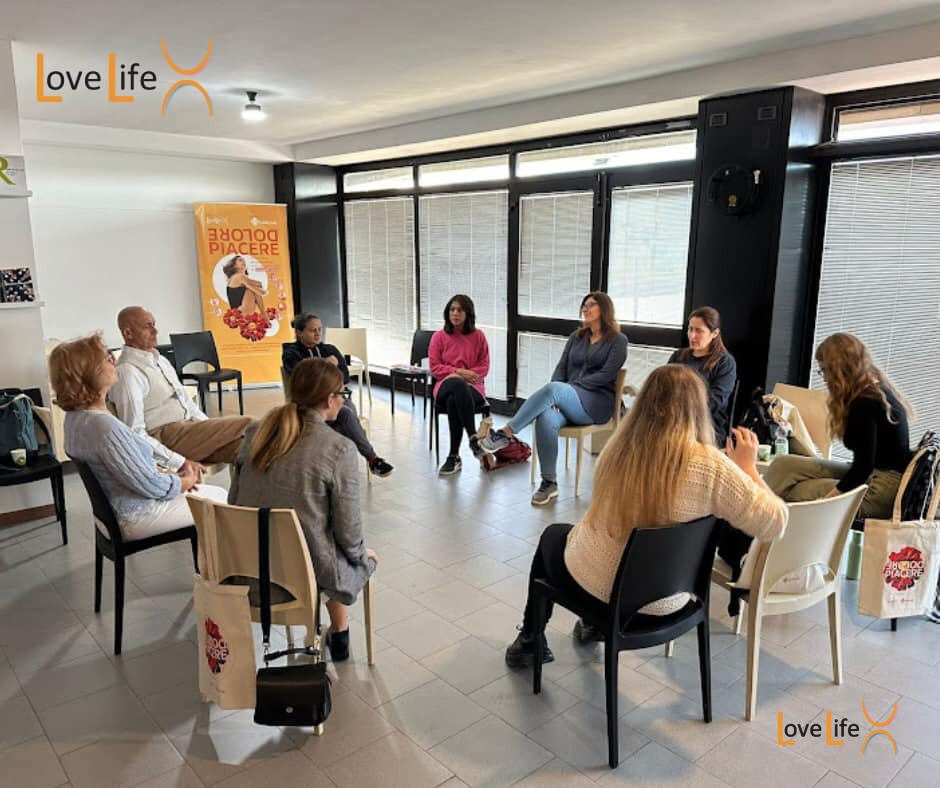
Psicoterapia di gruppo – Dolore Piacere – Spazio Qui, 2023
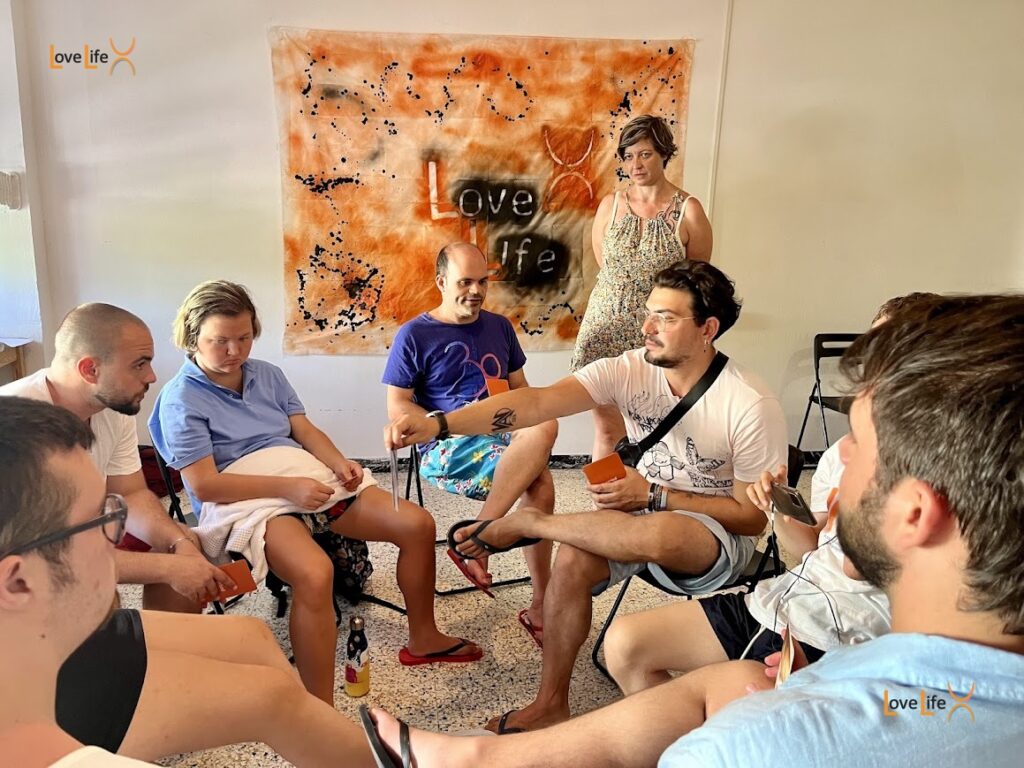
Le carte delle emozioni – Loving Summer Camp – Cervia, 2024
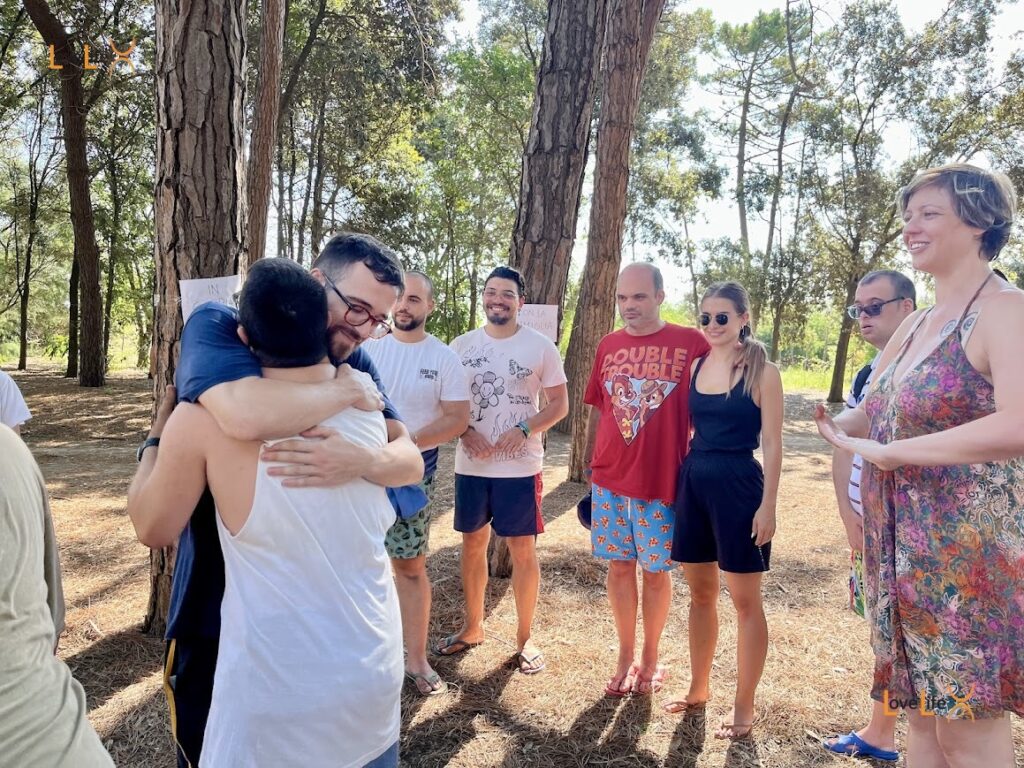
Laboratorio sugli abbracci – Loving Summer Camp – Cervia, 2024
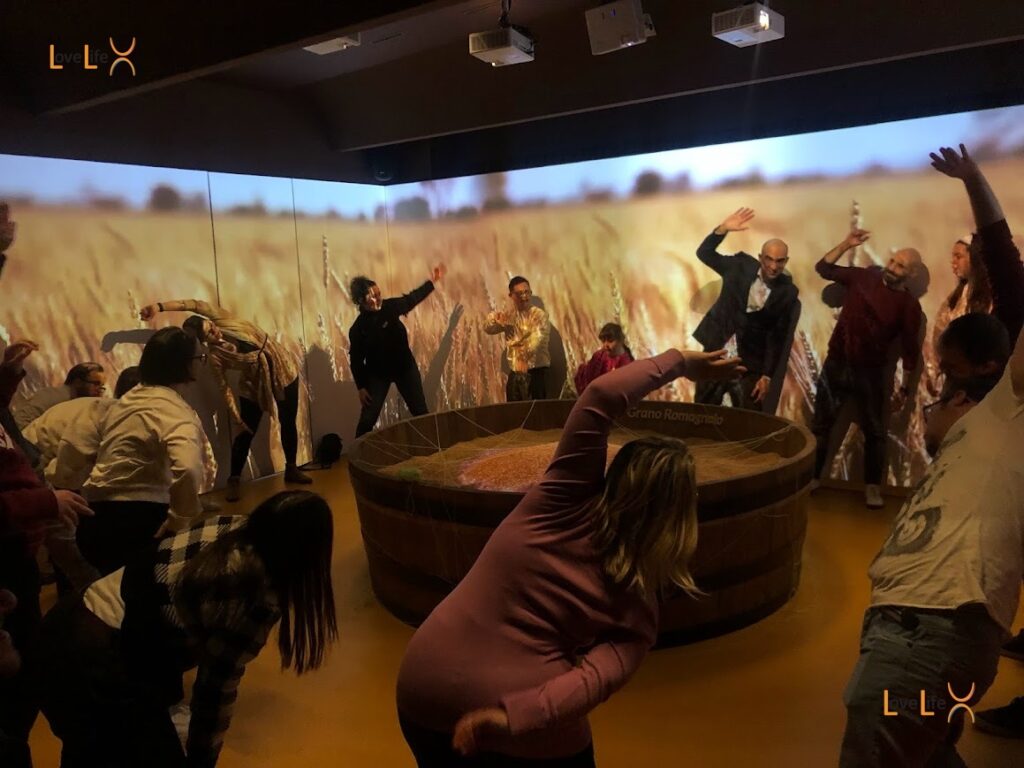
Ginnastica collettiva – Workshop, Sesso, Amore, Disabilità – Riccione 2024
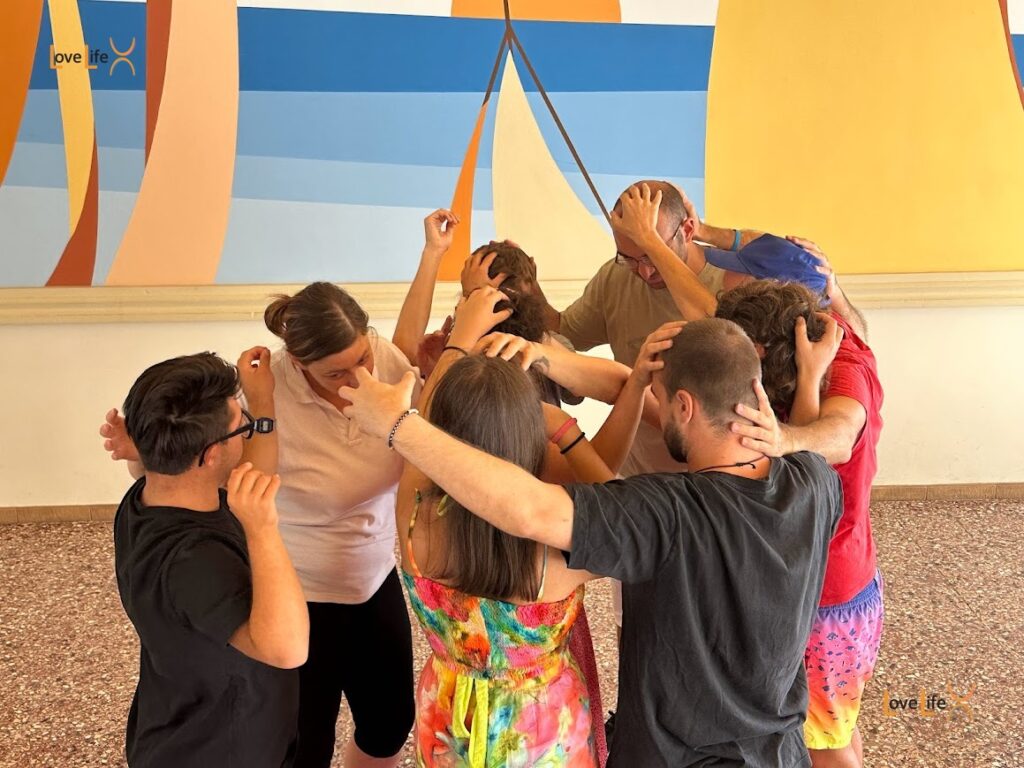
Contatti piacevoli – Loving Summer Camp – Pinarella, 2023